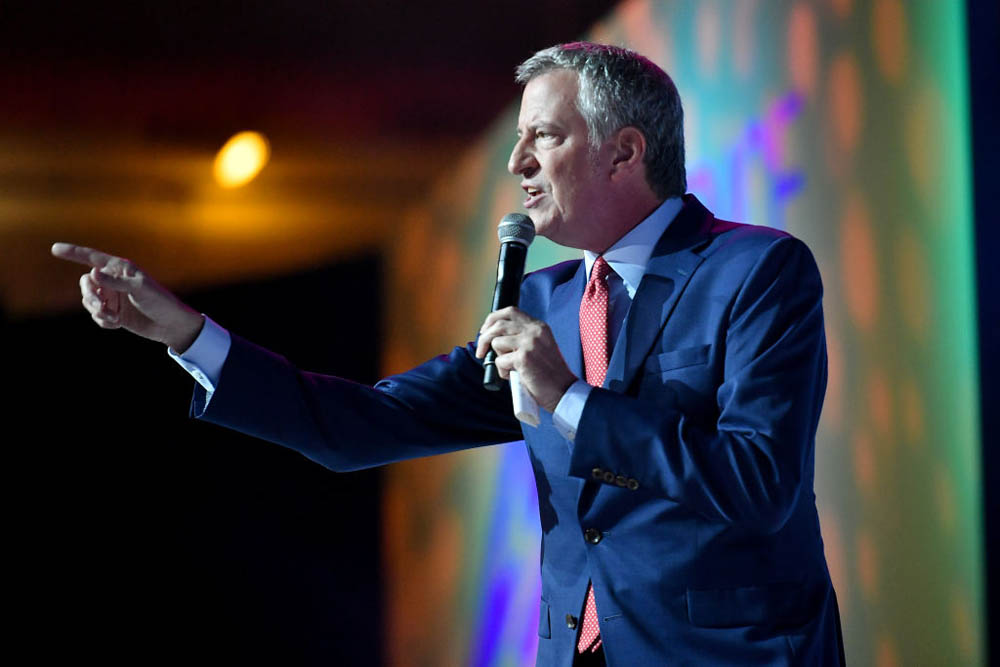It emerged this week that a restaurateur who gave Mayor de Blasio tens of thousands of dollars and who received very favorable service from City Hall regarding a lease dispute, pleaded guilty in 2016 to federal charges of bribing the mayor.
“I gave these donations to the elected official,” swore Harendra Singh, “in exchange for efforts by that official and other city officials to obtain a lease renewal from the city agency for my restaurant on terms that were favorable to me.”
Singh is currently the key witness in the corruption trial of former Nassau County Executive Ed Mangano, whom Singh also bribed.
The big question is how the briber is pleading guilty to serious crimes in federal court, while the guy who received the bribes is turning down invitations to the White House when he isn’t taking a convoy of SUVs to the gym?
According to de Blasio, though, there is nothing to see here. He still insists that his actions were “legal and appropriate and ethical” and that his campaign machinations were graded whistle-clean by the prosecutors who declined to bring charges, although the prosecutor involved, former acting US Attorney Joon Kim, has specified that not being charged is not the same as a finding of innocence.
“The big question is how the briber is pleading guilty to serious crimes in federal court, while the guy who received the bribes is turning down invitations to the White House when he isn’t taking a convoy of SUVs to the gym?”
Speaking to WNYC’s Brian Lehrer about Singh’s case Friday, the mayor said his donor’s confession is a pack of lies ginned up to protect himself. “This is a guy who obviously is a bad human being who did bad things and was caught doing bad things, and then when people do that, all they try and do is lessen the punishment to save their own skins. But this has been looked at really carefully. Nothing that he describes as having happened happened, period.”
De Blasio’s response is chutzpahdik in the highest degree. The mayor agrees that Singh is “a bad human being” who was “caught doing bad things,” and suggests that Singh tried to implicate the mayor in order to deflect from his own guilt. But the bad things that Singh pleaded guilty to involve giving de Blasio’s campaign money in order to get favorable treatment for his business, money that the campaign took. So if Singh didn’t do anything bad, why is he a bad person? De Blasio extricating himself from the equation of Singh’s guilty plea is like a child eating all the cookies and explaining their disappearance by saying the cookies ate themselves.
So when de Blasio says, “Nothing that he described as having happened happened, period,” what is the “nothing” he is talking about? It is a fact that Singh gave the campaign tens of thousands of dollars. It is also a fact that de Blasio held a fund-raiser at Water’s Edge, Singh’s restaurant. It is undeniable that Singh e-mailed the mayor’s aide to ask for help with renewing the lease for Water’s Edge, which sits on city-owned property. And it is also stipulated that Singh attended a meeting at City Hall with top de Blasio aide Emma Wolfe and Stacey Cumberbatch, who was then the commissioner of the Department of Citywide Administrative Services, to help hammer out a new lease with easier terms for Singh.
All of that “happened,” step by step. Denying it and testily telling Lehrer, “When there’s been a full investigation and we’ve answered a thousand times, it’s time to stop talking about it,” doesn’t erase the chain of events.
Bribery and pay-for-play are normally games for two people, but apparently in this case, they can be played solitaire. How it can be that Harendra Singh will probably go to jail for bribing Bill de Blasio while de Blasio is allowed to trot around the world proclaiming himself the leader of the progressive resistance is like another question that a wise man once asked: “Why do the wicked prosper?”
This piece originally appeared at the New York Post
______________________
Seth Barron is associate edtior of City Journal and project director of the Manhattan Institute’s NYC Initiative. Follow him on Twitter.
This piece originally appeared in New York Post
